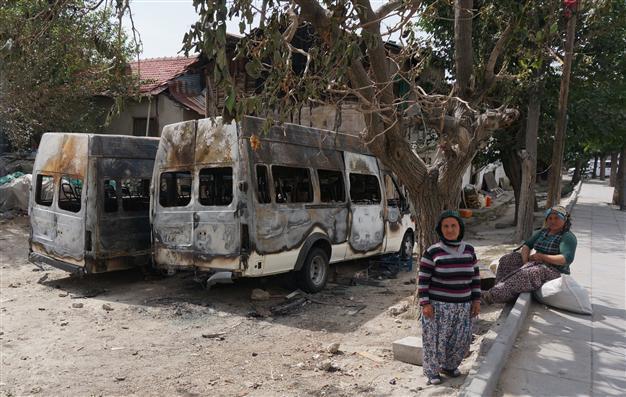Farmers plan to hire Syrians after attacked Kurdish workers leave Ankara town
Halime Güler – ANKARA

Cihan Photo
Farmers in the Beypazarı district of Ankara have complained Kurdish agricultural workers left the town after being attacked and said that they will resort to Syrian refugees as workers to prevent their harvests from rotting in the field.Many agricultural workers who came to Beypazarı from eastern and southeastern part of the country to work on the farms in the district left the town after some workers were attacked by a group of protesters. The attacks took place during an anti-terror rally organized following the death of 16 Turkish soldiers in an attack by the outlawed Kurdistan Workers’ Party (PKK) in the southeastern town of Dağlıca.
Seven people, including two police officers, were wounded when the protesters attacked the workers for allegedly speaking Kurdish.
Anti-terror rallies were staged across the country after 16 Turkish soldiers were killed in a roadside bomb attack by PKK militants in southeastern Hakkari province on Sept. 6.
“We know Kurdish citizens who have now left Beypazarı after many years. We had workers who were working here for 17 years. Apart from being a worker, they were our friends and neighbors. They did not harm anyone at any time,” said a farmer who wanted to remain anonymous. “Because a group of people treated Kurds as terrorists, they have left the town,” added the farmer.
Recalling that they cannot manage to complete the harvest without the help of the workers who left the town, the farmers said they fear this year’s product will rot in the fields.
Beypazarı deputy mayor Ahmet Gencer said around 80 percent of the workers who left the town were Kurdish people who feared for their security.
“We have met with Turkmen people to work in the farms. They did not agree to work here. We will talk to Syrian refugees who take shelter in the camp,” he said.
















